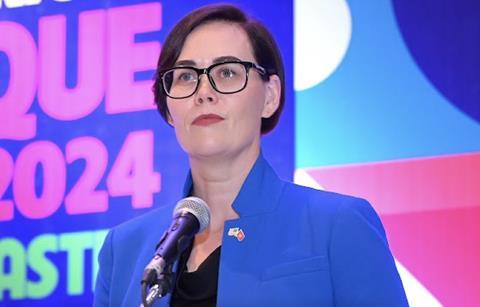Taylor will join as chief global policy officer after nearly two decades of public service in trade and agriculture policy
The International Fresh Produce Association (IFPA) has announced that Alexis Taylor will become the association’s chief global policy officer, taking up the role on 18 February.

Taylor, who most recently served as the under secretary of trade and foreign agricultural affairs (TFAA) at the US Department of Agriculture (USDA), will join the organisation after nearly two decades of public service in trade and agriculture policy.
“Alexis’s leadership with us will begin at a very important time,” said IFPA chief executive Cathy Burns. “As the world enters a new socio-political era following last year’s elections in more than 70 countries, it is imperative that our industry’s voice has impact.
”Leveraging her almost 20 years of experience in government, trade, and agriculture, she will help develop and shape our global advocacy efforts to further grow our influence.
”I’m excited to welcome her to the IFPA team and collaborate with her to drive policy outcomes that will benefit our members and global community,” Burns noted.
According to IFPA, Taylor will drive the association’s global public policy agenda and lead the Government Relations team.
The team has grown since IFPA launched in 2022 to reflect a ”significant investment in advocacy” on behalf of the industry.
While Taylor will focus on growing the industry’s global influence, US Government Relations will continue to be led by vice president of US Government Relations Rebeckah Adcock.
Adcock oversees US domestic policy and grassroots efforts as well as IFPA’S Political Action Committee, FreshPAC.
“I have dedicated my career to supporting agricultural producers and enhancing the competitiveness of the food and agricultural sectors in the global marketplace,” said Taylor.
“I’m thrilled to join IFPA to lead the global public policy agenda for the association and the produce and floral industry.
”I look forward to collaborating with industry stakeholders, governments, and multilateral institutions to ensure a prosperous, sustainable future – critical to growing consumption of fruits and vegetables around the world,” she added.



